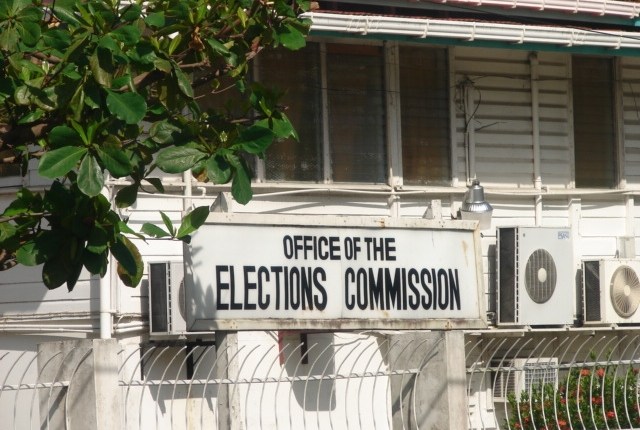Appeal against High Court order barring removal of persons from National Register of Registrants for Monday
A partial appeal to a judgment handed down last August, by Chief Justice Roxane George-Wiltshire, in which she ruled that it would be unconstitutional for the Guyana Elections Commission (GECOM) to remove the names of persons from the National Register of Registrants comes up for hearing on Monday at the Court of Appeal in Kingston.
Those names are of persons who were previously on the list but were not registered during the 2019 house-to-house registration. Non-residency in Guyana is not even a qualification for removal.
In the judgment, the Chief Justice issued an order that would make it unconstitutional to remove persons from the voters’ list unless they are dead or otherwise disqualified in accordance with Article 159 (2), (3) and (4) of the Constitution. Attorney General and Minister of Legal Affairs, Basil Williams, has taken issue with the order, and is seeking to have it reversed.
Specifically, Williams has taken issue with Justice George’s ruling on the issue of persons being removed from the list because it was not an order that was sought by Christopher Ram, who was first to institute legal proceedings on the legality of the house-to-house registration exercise.
In fact, Williams insists that by issuing such an order, the Chief Justice erred and misdirected herself in law.
Further, he contends, “The learned Trial Judge erred and was misconceived in law in finding that it would be unconstitutional to remove persons from the list who had previously been on the list but were not registered during house-to-house registration period because of non-residency in Guyana.
The learned Trial Judge erred and was misconceived in law by breaching the separation of powers doctrine where parliament clearly provided in Section 6 of National Registration Act, Chapter 19:08 Laws of Guyana for residency during house-to- house registration as at the ‘qualifying date’.”
According to Williams, there was no evidence which established that there was a breach of the Constitution, the National Registration Act or any other law, and rather the evidence was consistent with the fact that GECOM acted in accordance with Article 159 (2) (c), 159 (5) and 162 of the Constitution.
Williams, therefore, argues that, “(Justice George) erred and was misconceived in law when she breached the separation of powers doctrine by purporting to issue instructions to GECOM, a Constitutional independent actor to not remove persons who are presently registered from the current National Register of Registrants (NRR) but who are not registered under new house-to-house registration from the current National Register of Registrants.”
“The learned Trial Judge erred and was misconceived in law when she failed to appreciate that pursuant to Article 159 (5) of the Constitution and Sections 6 and 9 of the National Registration Act Chapter 19: 08, GECOM had embarked on compiling a new National Register of Registrants (NRR) which effectively replaces the current.”
He contends, too, that Justice George erred and was misconceived in law in finding that Article 159 (5) of the Constitution which addresses the ‘qualifying date’ is only applicable to persons 14 years or older for purposes of registration as at October 31, and not all Guyanese citizens. It is his view that the Chief Justice failed to apply any cannons of interpretation in order to arrive at such a conclusion.
According to the Attorney General, Justice George erred in law when she failed to appreciate that the issue of house-to-house registration and what register should be used for elections and the qualifying date were fully ventilated at the Caribbean Court of Justice (CCJ).
“The learned Trial Judge erred and was misconceived in law in finding that there is no law or laws in Guyana which set out additional requirements more particularly residence for purposes of Article 159 (2) ( c ) of the Constitution by failing to properly address her mind to Sections 6 of the National Registration Act, Chapter 19:08 Laws of Guyana.”
Contending that the Chief Justice once again erred in law, Williams argues that she failed to properly construe Section Six of the National Registration Act, Chapter 19:08 in order to find that residency is a requirement of the Act for the purposes of registration during the period of the ‘qualifying date.’ Among other things, he argues that Justice George erred in law and misdirected herself on the evidence as a whole.
In a Notice of Appeal, Williams lists Ram; Chief Elections Officer (CEO), Keith Lowenfield, and the Commissioner of National Registration as the Respondents. Follow this link for a synopsis on the Chief Justice’s ruling on the issue: https://www.kaieteurnewsonline.com/2019/09/01/a-synopsis-of-the-chief-justices-ruling-on-removing-the-name-of-a-person-who-is-currently-on-the-list-of-registrants-during-house-to-house-registration/






















